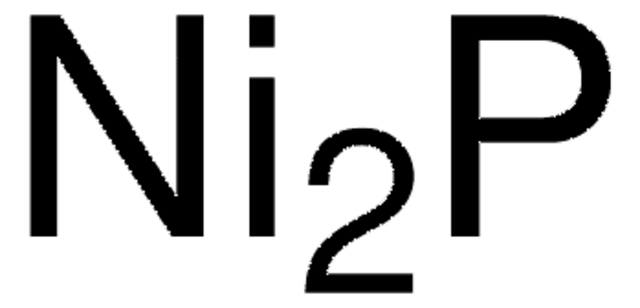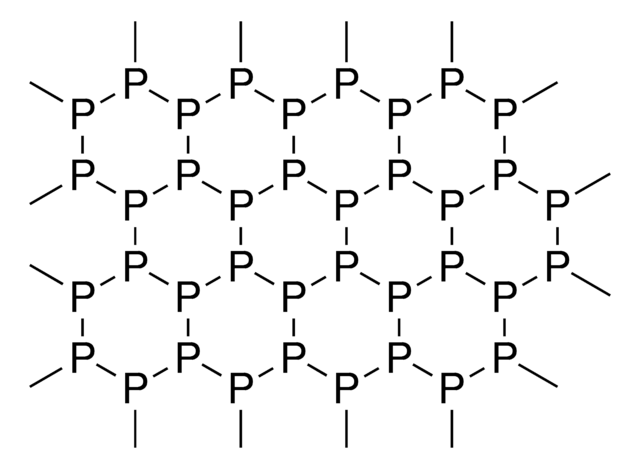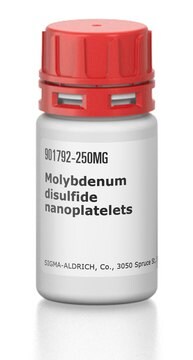901349
Hexagonal boron nitride ink
for blade coating
Synonym(s):
Hexagonal boron nitride dispersion, with ethyl lactate, hBN blade coatable ink, hBN dispersion
About This Item
Recommended Products
form
dispersion
composition
Solid content, 20-40%
greener alternative product characteristics
Design for Energy Efficiency
Learn more about the Principles of Green Chemistry.
sustainability
Greener Alternative Product
color
white
particle size
≤0.3 μm
surface tension
28-32 dyn/cm
viscosity
200-450 cP (shear viscosity at 1000 s-1, 25 °C)
bp
152-156 °C (ethyl lactate)
density
0.9-1.1 g/mL at 25 °C
greener alternative category
, Enabling
InChI
1S/BN/c1-2
InChI key
PZNSFCLAULLKQX-UHFFFAOYSA-N
Looking for similar products? Visit Product Comparison Guide
General description
signalword
Danger
hcodes
Hazard Classifications
Eye Dam. 1 - Flam. Liq. 3 - Skin Irrit. 2 - STOT SE 3
target_organs
Respiratory system
Storage Class
3 - Flammable liquids
wgk_germany
WGK 3
flash_point_f
116.6 °F
flash_point_c
47 °C
Choose from one of the most recent versions:
Already Own This Product?
Find documentation for the products that you have recently purchased in the Document Library.
Customers Also Viewed
Articles
Recent advancements in paper-based sensing platforms offer cost-effective clinical diagnostics with microfluidic channels and colorimetric or electrochemical detection zones.
Carbon-based Sustainable Organic Electronics (SOE) limit the use of critical elements and biodegrade at their end-of-life. This review offers insight on how structural and energy disorder in these materials influence device performance and includes evaluations of various transport models and their limitations.
Review on 1D vdWHs: Discusses materials, synthesis, optoelectronic applications, challenges, and future perspectives for 1D vdWH-based devices.
Professors summarize recent 2D materials synthesis advancements and biosensing applications in various fields.
Our team of scientists has experience in all areas of research including Life Science, Material Science, Chemical Synthesis, Chromatography, Analytical and many others.
Contact Technical Service










